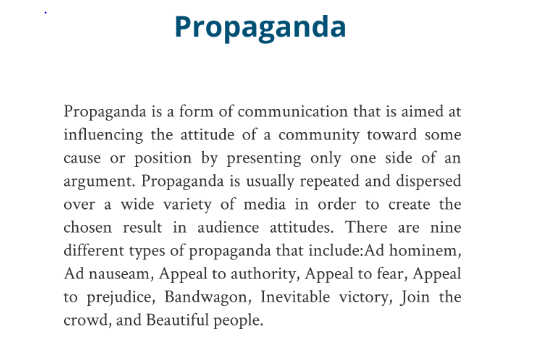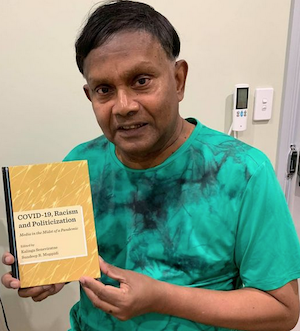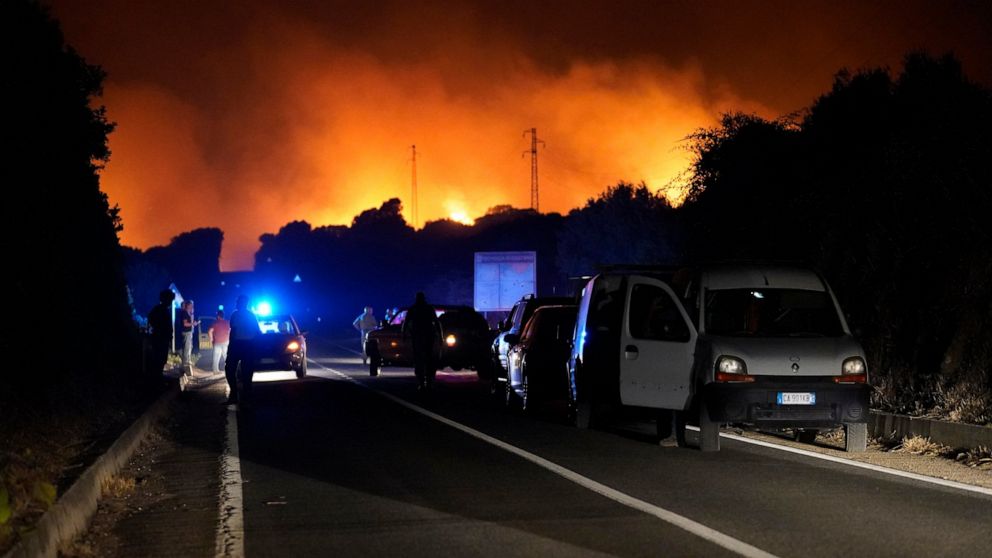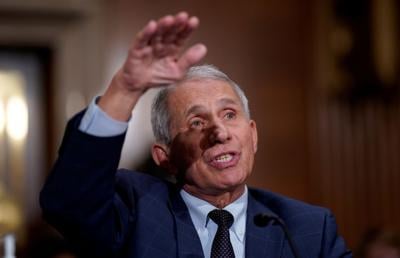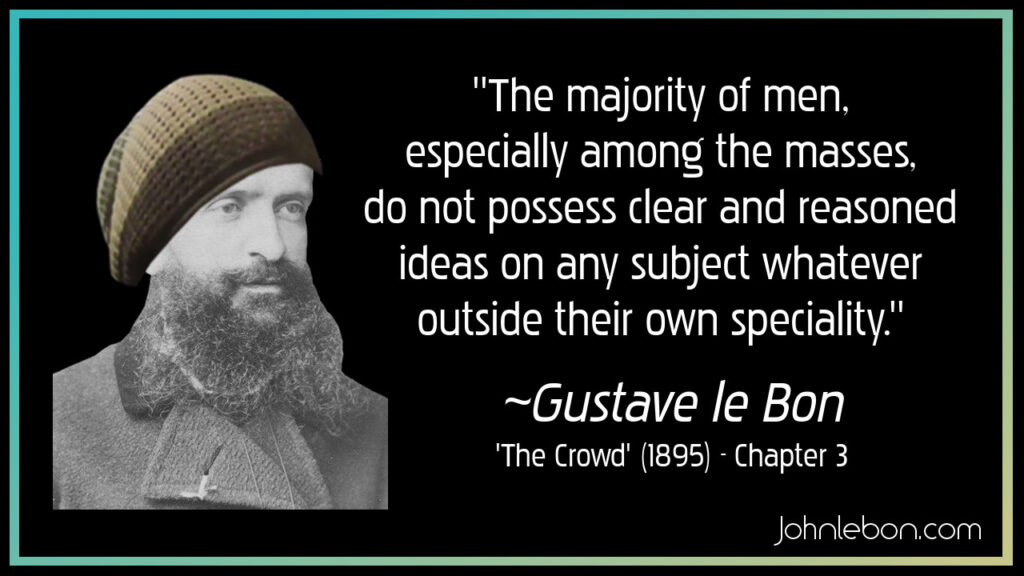
During last week’s Tory Cabinet reshuffle, ITV political editor Robert Peston inadvertently summed up the primary function of political journalists:
‘I simply pass on’
His tweet was in reference to a ministerial source saying that Priti Patel was ‘not looking happy’. She remained in her job as Home Secretary.
Peston’s phrase was a tragicomic echo of a remark by Nick Robinson, ITV political editor during the Iraq war, who infamously declared that:
‘It was my job to report what those in power were doing or thinking… That is all someone in my sort of job can do.’
(‘“Remember the last time you shouted like that?” I asked the spin doctor’, The Times, 16 July, 2004)
In 2012, Robinson, by now the BBC’s political editor, mourned:
‘The build-up to the invasion of Iraq is the point in my career when I have most regretted not pushing harder and not asking more questions’.
However, Robinson’s career certainly did not appear to have been harmed having abdicated this basic responsibility of journalism; namely, holding those in power to account. After a ten-year stint as the BBC political editor, he became a presenter on the high-profile BBC Radio 4 Today programme.
Peston’s counterpart at the BBC, political editor Laura Kuenssberg, also performs the required function of ‘I simply pass on’, broadcasting and amplifying the words of those in power with minimal ‘analysis’, far less critical appraisal. Relaying Prime Minister Boris Johnson’s words on the current crisis in gas supply in the UK, as he flew to New York to attend climate talks, she tweeted:
‘Speaking on the plane Johnson said..
1. gas supply probs shd be “temporary”, the squeeze is a result of world waking up from pandemic shutdowns like everyone “going to put the kettle on at the end of the TV programme” and he said he was confident in UK supply chains’
Gary Neville, the football pundit and former Manchester United defender, replied to Kuenssberg’s tweet:
‘Hi Laura do you believe this guys crap ?’
A tad blunt perhaps. But, judging by the number of ‘likes’ and ‘retweets’, it was a welcome challenge from someone with a public profile to the endless channelling by highly-paid political journalists of Johnson’s twaddle – and worse (as we will see below).
Daniel Finkelstein, the Tory peer and Times columnist, defended Kuenssberg and responded that reporting the Prime Minister’s words ‘is a part of her job’ so that the public can judge them for themselves. Three obvious glaring holes in his argument are that the BBC political editor:
(a) rarely challenges Johnson (or other government ministers) to any significant extent;
(b) provides very few perspectives or opinions from outside the narrow range of ‘mainstream’ Parliamentary debate (Labour hardly counts as an effective ‘Opposition’ under the Blair-lite Sir Keir Starmer;
(c) ignores Johnson’s many lies, falsehoods and misrepresentations which have been well-documented by several independent political observers, including Peter Oborne and Peter Stefanovic. Kuenssberg and her corporate media peers have given the Prime Minister a free pass on his serial deceptions.
There are countless examples of establishment bias by Kuenssberg (and her predecessors as BBC political editor). Recall, for example, that for years she channelled a one-sided account of Labour’s supposed antisemitism crisis, including an infamous BBC Panorama programme that was demolished as a ‘catalogue of reporting failures’ by the Media Reform Coalition. Recall, too, her evident disapproval when Jeremy Corbyn, then leader of the Labour Party, refused to give her a commitment in a BBC News television interview that he was willing to press the nuclear button to launch weapons that would cause untold death and suffering.
On 20 September, 2021, The National newspaper in Scotland reported that the flagship BBC News at Six ‘did not run a single negative news story about the UK Government’ during the previous week, 13-17 September. This was probably not an unusual week in that regard. Genuinely hard-hitting critical reporting of the Tory government is notable by its absence on BBC News and other establishment news media.
The truth is, that on one issue after another, leading journalists like Kuenssberg, Peston, and all the high-profile correspondents ‘reporting’ on politicians, the military and intelligence services spend too much time performing as mere stenographers to power. Rational and critical opposing voices are routinely ignored, marginalised or ridiculed.
Media Lens has documented and explained over the past two decades how ‘objectivity’ and ‘impartiality’ are alien concepts to state-corporate journalism. As the US commentator Michael Parenti once noted:
‘Bias in favor of the orthodox is frequently mistaken for “objectivity”. Departures from this ideological orthodoxy are themselves dismissed as ideological.’
Similarly, Matt Kennard, head of investigations at Declassified UK, a vital resource for independent journalism, put it well:
‘If you’re sympathetic to the weak, it’s activist journalism. If you’re sympathetic to the powerful, it’s objective journalism.’
The public are, in effect, constantly being subjected to gaslighting by corporate journalists purporting to inform the public what is happening around us. We are being told, explicitly and implicitly, that nothing is fundamentally wrong with the system of economics and power politics that prevail in the world. We are being misled that any serious problems that arise – even climate instability – can be ‘fixed’ by ‘incentivising’ changes to consumer behaviour, rejigging the economy by redirecting public subsidies from fossil fuels to renewables, but all still within a corporate-driven ‘market’ framework to maximise private profit, and by implementing technical ‘solutions’, such as capturing and storing carbon emissions (which have failed to live up to the grandiose PR promises made, while fossil fuel companies have received large injections of public cash from governments).
In fact, ‘mainstream’ news is characterised by serial deceptions and omissions that hide essential truths about the world. We are being drip-fed propaganda that preserves the current inequitable system of power, privilege and class – even as we hurtle towards the abyss of climate chaos.
Any one of the topics addressed here could merit a media alert in its own right. Indeed, in each case, we have done so several times before. The objective here is to provide something of an overview of the propaganda system that is leading us towards ever greater levels of inequality and misery, even human extinction; a timely reminder of what is at stake.
Endless War
Consider the recent pull-out of US troops from Afghanistan after twenty years of occupation. In an excellent article for the Morning Star, Ian Sinclair observed that BBC News and other outlets continued to promote ‘misleading narratives about the Afghan invasion and its motives’. As just one example, Sinclair highlighted Johnson’s ‘astonishingly deceitful claim’ that:
‘It was no accident that there has been no terrorist attack launched against Britain or any other Western country from Afghanistan in the last 20 years.’
Sinclair countered:
‘First, terrorist attacks have taken place in Britain and the US that have been inspired by the US-British invasion and occupation of Afghanistan.’
He continued:
‘Second, it is widely understood by intelligence agencies and experts that the West’s military intervention in Afghanistan led to a heightened terrorist threat to the West.’
Sinclair added:
‘The final problem with the government’s claim that the war stopped terrorism on the West from Afghanistan is that it’s based on a simplistic understanding of the September 11 2001 terror attacks — that it was necessary for terrorists to “have a safe haven to plan and launch attacks on America and other civilised nations,” as president George W Bush explained in 2006.’
However, the 9-11 attacks were planned initially in Germany, training was implemented in the US and most of the hijackers were Saudi. A recent article in CovertAction Magazine noted that:
‘The invasion of Afghanistan was launched following the NATO invocation of Article 5 of the Washington Treaty, but eventually it emerged that the report presented to NATO by U.S. Ambassador Frank Taylor contained no actual forensic evidence to support the assertion that the terror attacks had been orchestrated in Afghanistan.’
The 7 July 2005 bomb attacks in London, and the Manchester Arena bombing and London Bridge attacks in 2017, required no ‘safe haven’ for terrorists to commit atrocities in Britain.
Sinclair summed up:
‘The omissions and distortions that have been made by politicians about Afghanistan over the last few weeks, echoed by much of the media, have been so big and unremitting it’s easy to start questioning one’s own grip on reality.’
But following corporate news media daily can have precisely that effect. In gaslighting media audiences, ‘mainstream’ news routinely skews the agenda in favour of what Washington and its allies wish to project. Thus, as Julie Hollar noted in a piece for US-based media watchdog Fairness and Accuracy In Reporting (FAIR), the corporate media only rediscovered Afghan women and their human rights when US troops left:
‘[corporate media] coverage gives the impression that Afghan women desperately want the US occupation to continue, and that military occupation has always been the only way for the US to help them. But for two decades, women’s rights groups have been arguing that the US needed to support local women’s efforts and a local peace process. Instead, both Democrat and Republican administrations continued to funnel trillions of dollars into the war effort, propping up misogynist warlords and fueling violence and corruption.’
Hollar continued:
‘The US did not “rescue” Afghan women with its military invasion in 2001, or its subsequent 20-year occupation. Afghan women need international help, but facile and opportunistic US media coverage pushes toward the same wrong kind of help that it’s been pushing for the last two decades: military “assistance,” rather than diplomacy and aid.’
She concluded:
‘For more than 20 years, US corporate media could have listened seriously to Afghan women and their concerns, bringing attention to their own efforts to improve their situation. Instead, those media outlets are proving once again that Afghan women’s rights are only of interest to them when they can be used to prop up imperialism and the military industrial complex.’
FAIR has summarised a 20-year-long pattern of corporate media self-censorship, scapegoating and stenography since 9-11. The US ‘war on terror’ has likely killed more than one million people at a cost of $8 trillion, according to Brown University’s Costs of War project. The report states:
‘Several times as many more have been killed as a reverberating effect of the wars – because, for example, of water loss, sewage and other infrastructural issues, and water-related disease.’
Cost of War co-director Stephanie Savell said:
‘Twenty years from now, we’ll still be reckoning with the high societal costs of the Afghanistan and Iraq wars – long after US forces are gone.’
The corporate media played a major role in bringing about this catastrophe, then covering it up afterwards.
Meanwhile, the Biden administration is continuing its immoral mission to prosecute Julian Assange, the WikiLeaks co-founder and publisher, for telling the truth about US crimes in Afghanistan, Iraq and elsewhere. Assange rightly said in 2011 that the US goal was ‘an endless war, not a successful war’. The aim is to line the pockets of the narrow sector of society that profits from the military-industrial complex, at the expense of the general population.
In a piece for Newsweek, Daniel Ellsberg, Alice Walker and Noam Chomsky wrote that:
‘When Assange published hundreds of thousands of classified military and diplomatic documents in 2010, the public was given an unprecedented window into the lack of justification and the futility of the wars in Afghanistan and Iraq. The truth was hidden by a generation of governmental lies. Assange’s efforts helped show the American public what their government was doing in their name.’
As we have noted in previous media alerts, Assange’s continued incarceration and long-term confinement, described as torture by Nils Melzer, the UN Special Rapporteur on Torture, is a damning indictment of Western ‘democracy’.
Political commentator Philip Roddis observes astutely that ‘Western democracy is ninety-five percent bogus’ because:
‘(a) democracy implies consent, (b) consent is meaningless if not informed, and (c) informed consent implies truly independent media. That last we do not have when they are “large corporations selling privileged audiences to other large corporations” [quoting Noam Chomsky].’
A recurring feature of ‘democracy’ and its ‘free press’ is judicious silence or quiet mumbling when a ‘mistake’ is made. Consider the BBC’s limited apology, and dearth of follow-up by almost all media, when the BBC conceded its coverage of an alleged chemical weapons attack in the Syrian city of Douma on 7 April, 2018 was ‘seriously flawed’.
As we have described in numerous media alerts, the corporate media declared with instant unanimity and certainty that Syria’s President Bashar Assad was responsible for the attack. One week later, the US, UK and France launched missiles on Syria in response to the unproven allegations. Since then, there has been a mounting deluge of evidence, in particular from whistleblowers, that the Organisation for the Prohibition of Chemical Weapons (OPCW), the UN poison gas watchdog, has perpetrated a cover-up to preserve the Western narrative that Assad gassed civilians in Douma.
Mail on Sunday columnist Peter Hitchens had complained to the BBC following last November’s Radio 4 broadcast of ‘Mayday: The Canister On The Bed’, which propagated the official Western narrative of the attack. In particular, Hitchens had objected to the slurs against an anonymous OPCW whistleblower named ‘Alex’. The BBC had claimed that ‘Alex’ only cast doubt on the official narrative because he had been promised $100,000 by WikiLeaks. The claim was false, as the BBC later admitted. There was no evidence to suggest that ‘Alex’, described as ‘a highly qualified and apolitical scientist’, was motivated by anything other than a desire for truth in sharing his doubts about the attack.
Aaron Maté, an independent journalist with The Grayzone, has vigorously and repeatedly pursued the story, shaming both ‘mainstream’ media and most progressive media outlets who, like the corporate media, have blanked the scandal. He recently wrote a devastating account of the deceptions and evasions by OPCW Director-General Fernando Arias when appearing before the UN. Now, in a must-watch interview with Jimmy Dore about the BBC’s apology, Maté said that the BBC only retracted part of its attack on the OPCW whistleblowers and that ‘the retraction only scratches the surface of its deceit.’
Steve Sweeney, international editor of the Morning Star, noted in response to the BBC’s apology on its Douma coverage that:
‘None of the major British newspapers such as The Times, The Telegraph, or the liberal mouthpiece for war with a human face, The Guardian, gave it column space despite the serious nature of the matter.’
The Stark Reality Of Newspeak
But, of course, ‘we’ are the ‘good guys’. And when evidence emerges to the contrary, it is shunted to the margins or buried. Other countries might be ‘belligerent’, but not us. Hence the deeply skewed reporting of the recent ‘Aukus pact’ between the US, UK and Australia which will provide Australia with nuclear-powered submarines. This was largely presented by state-corporate news, including the BBC and the Guardian, as a ‘defence’ deal to ‘counter’ China in its ‘belligerent behaviour’ in the Indo-Pacific.
BBC News at Ten declared on 16 September:
‘The deal will deliver nuclear-powered submarines to the Australian navy to promote stability in the Indo-Pacific region which has come under increasing pressure from China.’
The BBC might as well admit that they are reading out press releases on behalf of Western power.
An online BBC News article included the deceptive wording:
‘Aukus is being widely viewed as an effort to counter Beijing’s influence in the contested South China Sea.’
The weasel phrase ‘widely viewed’ is newspeak for ‘the view from Washington and London’.
Likewise, the Guardian dutifully carried the official US-UK view and framed its reporting accordingly:
‘In Washington, the US defence secretary, Lloyd Austin, made clear that the administration had chosen to close ranks with Australia in the face of belligerent Chinese behaviour.
‘Austin said he had discussed with Australian ministers “China’s destabilising activities and Beijing’s efforts to coerce and intimidate other countries, contrary to established rules and norms”, adding: “While we seek a constructive results-oriented relationship with [China], we will remain clear-eyed in our view of Beijing’s efforts to undermine the established international order.”’
Imagine if western journalists regularly wrote news reports about the plentiful examples of belligerent US behaviour. And about America’s destabilising activities and efforts to coerce and intimidate other countries, contrary to established rules and norms. But that would be real journalism. Instead, a Guardian editorial oozed its approval:
‘A firm and unified response to China’s actions by democratic nations is both sensible and desirable.’
There was no mention in any of the current reporting, as far as we could see, that the UK is set to increase its number of nuclear warheads by over 40 per cent, breaking international law. The Campaign for Nuclear Disarmament is encouraging the public to report the UK government to the UN.
This behaviour by the UK is no exception. ‘We’ routinely flout the law on arms, nuclear or conventional. Andrew Feinstein and Alexandra Smidman recently reported for Declassified UK, that Britain’s ‘robust’ arms export controls are a fiction:
‘In practice, UK controls on arms exports are all but voluntary, and Britain routinely arms states abusing human rights and those at war.
‘Britain exported more than £11-billion worth of arms around the world in 2019 but UK ministers claim this trade is properly administered in a mantra that goes like this:
‘“HM Government takes its export control responsibilities very seriously and operates one of the most robust arms export control regimes in the world. We consider all export applications thoroughly against a strict risk assessment framework and keep all licences under careful and continual review as standard.”’
However, Feinstein and Smidman pointed out that:
‘These contentions are not true and the stark, unavoidable reality is that the British government and its weapons manufacturers, between whom there is a symbiotic relationship, repeatedly violate domestic law and international agreements on arms controls with no repercussions.’
In short:
‘The British arms industry, politicians, the military and intelligence services can all essentially do what they want, with limited scrutiny and virtually no accountability.’
As just one damning example: in supplying arms and other support, including military training and maintenance services to Saudi Arabia, Britain is an active contributor to the brutal Saudi subjugation of the Yemeni people.
The UK also defies its own arms exports criteria in relation to Israel, to whom the UK has sold military equipment worth more than £400 million since 2015. Even this year’s deadly Israeli attacks in Gaza caused no let-up in UK sales to Israel.
These are all yet more examples of the gaslighting that state-corporate news media are guilty of: the constant framing of the UK as a ‘defender’ and ‘promoter’ of ‘security’ and ‘stability’, while the state and military companies pursue arms sales and a wider foreign policy that kills and endangers people abroad and at home.
‘Nothing Is Moving’ On Climate
Almost inevitably, BBC political editor Laura Kuenssberg makes a return in this alert for another dishonourable mention. ‘Boris Johnson aims to push for more climate action during trip’, she gushed after travelling as part of a press pack with him and his entourage on a plane headed to New York for climate talks. She wrote that Johnson was ‘delighted’ to be:
‘acting as the host of the government plane he has had repainted with the Union Jack on the tail, urging journalists to approve of the new paint job.’
But the most significant ‘paint job’ here was the BBC’s depiction of Johnson as some kind of climate hero. ‘Brokering climate deals a political priority’, was one headline in Kuenssberg’s report. She added:
‘the prime minister’s main task on this trip to New York is to push other countries to make more meaningful promises on cash and climate.’
The notion that Johnson, who has frequently cast doubt on global warming and made derogatory remarks about ‘bunny-hugging’, is a true champion of climate and environmental protection is bogus and dangerous. As recently as December 2015, when it was unseasonably warm, he published a Telegraph piece titled, ‘I can’t stand this December heat, but it has nothing to do with global warming’.
He wrote:
‘We may all be sweating in the winter air, but remember, we humans have always put ourselves at the centre of cosmic events.’
Referring to the leaders of state who had been at the 2015 Paris climate talks, Johnson added:
‘I am sure that those global leaders were driven by a primitive fear that the present ambient warm weather is somehow caused by humanity; and that fear – as far as I understand the science – is equally without foundation.
‘There may be all kinds of reasons why I was sweating at ping-pong [in December] – but they don’t include global warming.’
The reference to ‘ping-pong’, and his flippant remarks on the climate talks, suggest the whole thing was all just a game to Johnson; a ‘jolly wheeze’ to provide ammo to churn out another newspaper column.
In this month’s Cabinet reshuffle, Johnson appointed Anne-Marie Trevelyan as his new International Trade Secretary. She had previously rejected climate science in a series of tweets between 2010 and 2012, stating in one:
‘Clear evidence that the ice caps aren’t melting after all, to counter those doom-mongers and global warming fanatics.’
People can, of course, change their minds when confronted by cast-iron evidence and solid arguments. Johnson himself said this month that ‘the facts change and people change their minds’. But the facts had not changed. Certainly not since 1988 when the UN Intergovernmental Panel on Climate Change was set up and renowned climate scientist James Hansen testified to the US Congress about the already-known dangers of climate instability.
Moreover, how sincere can someone like Johnson be with his appalling track record? Has his understanding around the serious reality and implications of catastrophic climate change really changed? Or does he just say whatever he believes is politically expedient to retain his grip on power?
In April 2021, Johnson waffled about ‘building back greener’ after the pandemic.
‘It’s vital for all of us to show that this is not all about some expensive, politically correct, green act of bunny hugging.
‘What I’m driving at is this is about growth and jobs.’
Experienced observers of political rhetoric will recognise that ‘jobs’ is often newspeak for ‘corporate profits’.
Johnson’s insincerity and disregard for those he considers beneath him surfaced once more in the grossly insensitive remarks he made in ‘joking’ about Margaret Thatcher’s ‘green legacy’. During a visit to a windfarm off the Aberdeenshire coast in July, he was asked if he would set a deadline for ending fossil fuel extraction. He replied with what he clearly thought was a witty remark:
‘Look at what we’ve done already. We’ve transitioned away from coal in my lifetime.
‘Thanks to Margaret Thatcher, who closed so many coal mines across the country, we had a big early start and we’re now moving rapidly away from coal altogether.’
Continuing his track record of serial deceptions, Johnson boasted this month that:
‘The fact is the UK is leading the world [in tackling the climate crisis] and you should be proud of it.’
The Swedish climate activist Greta Thunberg was scathing of this ‘lie’ that has been channelled repeatedly by Johnson and other cabinet ministers ahead of the COP26 climate conference in Glasgow this November:
‘There’s a lie that the UK is a climate leader and that they have reduced their emissions by 45 per cent since 1990.’
She pointed out that the statistics do not include the UK’s share of emissions from international aviation, shipping and imported goods:
‘Of course, if you don’t include all emissions of course the statistics are going to look much nicer. I’m really hoping that we stop referring to the UK as a climate leader, because if you look at the reality that is simply not true. They are very good at creative carbon accounting, I must give them that, but it doesn’t mean much in practice.’
Rational analysis also shows that none of the world’s major economies – in particular, the entire G20 (which includes the UK) – is in line with the Paris Agreement on climate.
The watchdog Climate Action Tracker (CAT) analysed the policies of 36 countries, as well as the 27-nation European Union, and found that all major economies were off track to contain global warming to 1.5 degrees Celsius above pre-industrial levels. The countries together make up 80 per cent of the world’s emissions.
Niklas Höhne, a founding partner of the NewClimate Institute, a CAT partner, warned that:
‘there has been little to no improvement: nothing is moving. Anyone would think they have all the time in the world, when in fact the opposite is the case.’
The lack of seriousness given by UK broadcasters to the crisis is evident in the results of a recent study that showed that the word ‘cake’ appeared 10 times more on British television than ‘climate change’ in 2020 while ‘dog’ was mentioned 22 times more. Mentions of climate change and global warming fell by 10 per cent and 19 per cent respectively compared with 2019, the report from BAFTA-backed sustainability initiative Albert found.
Joanna Donnelly of Met Éireann, the Irish Meteorological Service, told viewers of the ‘Claire Byrne Live’ programme on Irish television that:
‘when it comes to climate change, we are in an emergency situation’
Irish journalist John Gibbons highlighted the TV clip on Twitter, praising Donnelly’s forthright words, adding:
‘We’re in a Code Red national/global emergency, might be a good time to start acting like it (yes, media friends, that means YOU)’
A soberly-worded, but terrifying, assessment of climate change risk published last week by Chatham House warned that, unless countries dramatically increase their commitments in carbon cuts:
‘many of the climate change impacts described in this research paper are likely to be locked in by 2040, and become so severe they go beyond the limits of what nations can adapt to.’
The report added that:
‘Any relapse or stasis in emissions reduction policies could lead to a plausible worst case of 7°C of warming by the end of the century’
That prospect is terrifying. John Schellnhuber, one of the world’s leading climate scientists, warned a decade ago that:
‘the difference between two degrees and four degrees [of global warming] is human civilisation.’
In other words, we are potentially talking about the end of human life as we know it; perhaps even human extinction.
James Hansen, the previously mentioned climate expert, remains sceptical about a truly successful outcome of COP26 in Glasgow. He wrote earlier this month:
‘The bad news: we approach the gas bag season – the next Conference of the Parties (COP26) is scheduled for November 1-12. Gas bag politicians won’t show you the data that matter because that would reveal their miserable performances. Instead, they set climate goals for their children while adopting no polices that would give such goals a chance. Some of them may have been honestly duped about the science and engineering, but many must be blatant hypocrites.’
Other than the ever-present risk of nuclear war, there is no greater threat to humanity than the climate crisis. And there is no more damning example of gaslighting by state-corporate media when they tell us we can trust governments and corporations to do what is required to avert catastrophe.

The post
Gaslighting The Public: Serial Deceptions By The State-Corporate Media first appeared on
Dissident Voice.
This post was originally published on Dissident Voice.












/cdn.vox-cdn.com/uploads/chorus_image/image/70019326/Labor_7.0.jpg)

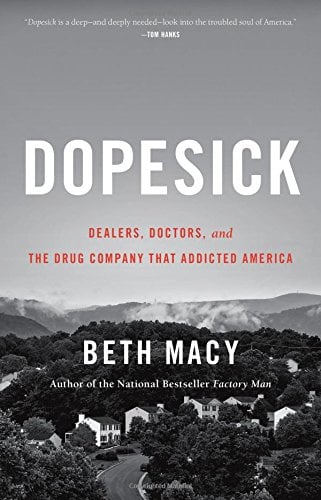






 I cut my teeth in El Paso as a graduate TA teaching English – writing, composition, remedial reading, literature – in the early 1980s. That’s when librarians were robust, gutsy and on the front lines of free speech. They helped develop library materials and organize talks around Banned Books Week (September 26 – October 2).
I cut my teeth in El Paso as a graduate TA teaching English – writing, composition, remedial reading, literature – in the early 1980s. That’s when librarians were robust, gutsy and on the front lines of free speech. They helped develop library materials and organize talks around Banned Books Week (September 26 – October 2).